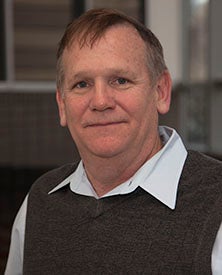Government budget cuts force leading meteorological training program to seek donations
Funding shortfall hits main source of online weather training
Apr 15, 2013 - by Staff
Apr 15, 2013 - by Staff
BOULDER -- The main source of online weather training for hundreds of thousands of forecasters, emergency managers, and others in the United States and abroad is turning to donations from users in order to try to stay in service.
The COMET Program, managed by the University Corporation for Atmospheric Research (UCAR), is taking this unprecedented step in the face of a funding shortfall of nearly $2 million. The deficit reflects this year’s government sequestration as well as further federal budget cuts anticipated in fiscal year 2014.
More than 275,000 meteorologists, pilots, firefighters, emergency managers, other professionals, and students rely on COMET's MetEd website (http://meted.ucar.edu).
The courses, which are offered for no charge, offer job-focused training that goes into far more detail than typical university classes on subjects such as marine winds and waves, aviation ceiling and visibility, forecasting for wildfires, and more. They help users better predict potential threats to society, including hurricanes and severe storms, aviation hazards, tsunamis, and emergency responses to hazardous releases.

Rich Jeffries (©UCAR. Photo by Carlye Calvin. This image is freely available for nonprofit and media use.)
Budget cuts have forced several of the government agencies that sponsor MetEd to reduce, delay, or eliminate funding for the program’s base expenses. The cuts are a last resort by agencies that continue to view MetEd as an important resource but are dealing with sequestration and a future of continuing budget cuts, says COMET director Rich Jeffries.
“Meteorologists who provide critical prediction services for the nation's weather services and the U.S. military, as well as pilots and emergency managers, rely on MetEd to stay up to date on forecasting research and technology,” Jeffries says. “Without MetEd, the ability of these forecasters and other professionals to keep their skills current and provide needed predictions of potentially dangerous weather events would be seriously impaired.”
Leading military officials say the classes are vital for their operations. In the U.S. Navy, for example, such specialized training is essential to meet the needs of a wide range of scenarios in violence-prone regions.
“COMET modules are instrumental to meeting our mission," says Rear Admiral Brian Brown, commander of the U.S. Naval Meteorology and Oceanography Command. "They provide our sailors an additional layer of highly-focused training and education. We call them 'just in time' training. For example, when sailors deploy to the Middle East, they use COMET modules to learn forecasting techniques for dust storms.”
COMET's online training modules cover a range of critical topics, from severe storms to tsunamis.
MetEd has saved the U.S. government millions of dollars over the last few years by providing virtual training and online modules in lieu of traditional in-person classes, which involve considerable travel and housing expenses. In just one case, federal, state, and local users have saved millions of dollars through online access to an intermediate wildland fire behavior course that was officially certified in 2010.
“With all the threats that extreme weather events pose to our nation, U.S. forecasters cannot afford to lose their edge as a result of inadequate training,” says UCAR president Thomas Bogdan. “MetEd is a remarkably economical way to provide high-quality training at no cost to users.”
The service is also a powerful way to bolster the skills of forecasters in developing countries, where other sources of training may be sparse or absent. Improving meteorological expertise is critical as these nations seek to expand airports and make travel safer for visitors from other countries.
Jeffries estimates the value of the entire MetEd website at more than $70 million, an investment that would be jeopardized if the system cannot be maintained.
COMET has set an initial target of raising enough money—$400,000—to keep the current MetEd site operational through this fiscal year, if no additional modules are created. This translates to just less than $1.50 per MetEd user.
“We think that $1.50 per user is an amazing bargain, considering the wealth of material that MetEd provides,” says Jeffries.
Providing free and open access to users from all over the world has been a priority for COMET since it launched the MetEd website in 1997.
With more than 480 modules online, MetEd offers more than 700 total hours of training, all available at no cost to users. In addition to meteorologists and other professionals, students in many disciplines at more than 1,600 universities worldwide use MetEd modules as a key part of their education in the geosciences.
Among COMET’s major honors for MetEd are the American Geophysical Union’s Excellence in Geophysical Education Award (2006) and the 2009 Public Education Award from the National Weather Association.
MetEd users and others interested in supporting the service can donate at the website.
In addition to soliciting donations from users, COMET is seeking support from foundations and other potential sponsors.
Private meteorologists said they are hopeful that the training will continue.
"MetEd is by far the best way to learn to be a better forecaster," says Dan Satterfield, chief meteorologist at WBOC-TV in Salisbury, Maryland. "Thanks to their modules, I can do a much better job alerting our viewers to major storms, protracted cold spells, and other potentially harmful weather events."